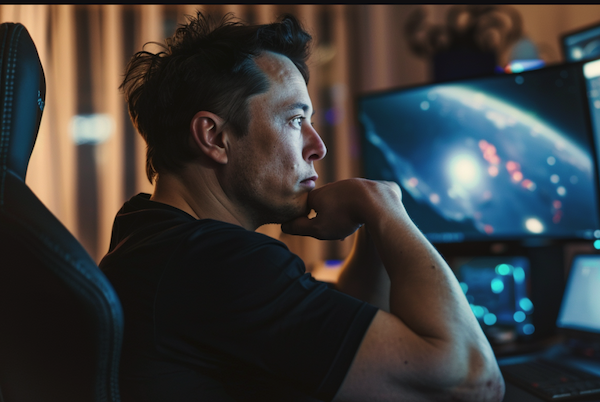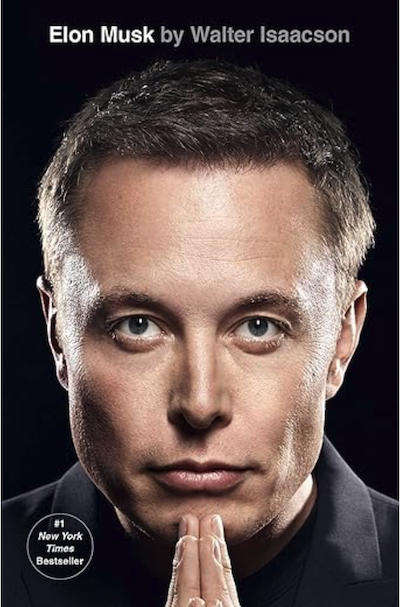Your cart is currently empty!
Does Elon Musk have Asperger’s (Autism) and the role in his Unconventional Thinking
Author:
Published:
Updated:

Does Elon Musk have Asperger’s syndrome (Autism)? The answer is yes. In a 2021 episode of Saturday Night Live, Musk publicly disclosed that he has Asperger’s, a form of autism spectrum disorder.
This revelation shed light on the tech billionaire’s unique perspective and unconventional approach to problem-solving, which have been integral to his success across various industries.
Understanding Asperger’s Syndrome (Autism)
Asperger’s syndrome is a neurodevelopmental disorder characterized by challenges in social interaction, restricted interests, and repetitive behaviors. People with Asperger’s often have above-average intelligence and excel in their areas of interest. Like autistic people, they may struggle with social cues and communication, but their unique perspective and intense focus can lead to remarkable achievements.
Musk’s Unique Perspective
Elon Musk’s Autistic nature (Asperger’s) has likely played a significant role in his ability to approach problems from angles others might overlook. His unconventional thinking has led to groundbreaking innovations in electric vehicles, space exploration, and renewable energy. Musk’s ability to think outside the box and challenge established norms has been a driving force behind his success.
Intense Focus and Expertise
Individuals with Asperger’s often possess an exceptional ability to concentrate on their areas of interest, allowing them to develop deep expertise and generate novel ideas. Musk’s intense autistic focus has enabled him to master complex subjects such as rocket science, electric vehicle manufacturing, and solar energy. His ability to delve deep into these fields has led to the creation of companies like SpaceX, Tesla, and SolarCity.
Challenging the Status Quo
Musk’s suspected Asperger’s may contribute to his willingness to challenge established norms across multiple industries. He has repeatedly questioned conventional wisdom and pushed for innovative solutions, even in the face of skepticism and criticism. This fearless approach to problem-solving has allowed him to disrupt industries and create new markets.
Looking for more inspiration 📖
- Ilya Sutskever and his AI passion: 7 Deep Dives into his mind
- The “secret” Sam Altman blog post that will change your life
- 4 Life-Changing Lessons we can learn from John McCarthy – one of AI’s Founding Fathers
- Decoding Mark Zuckerberg: 5 Insights Into His Personality Type Through Real-Life Examples
- Decoding Bill Gates: 5 Insights Into His Personality Type Through Real-Life Examples
The Hyperloop Example
One notable example of Musk’s unconventional thinking is his development of the Hyperloop concept. The Hyperloop is a proposed high-speed transportation system that would use pressurized tubes to transport passengers and cargo at speeds exceeding 700 miles per hour. When Musk first introduced the idea in 2013, it was met with widespread skepticism and doubts about its feasibility.
However, Musk’s ability to approach transportation from a unique perspective, unencumbered by traditional limitations, allowed him to envision a radically different solution to the problem of long-distance travel. His innovative thinking, which may be linked to his Asperger’s, has inspired numerous companies and researchers to explore the potential of Hyperloop technology.
The Elon Musk Biography
Get on Amazon
#1 New York Times bestseller
From the author of Steve Jobs and other bestselling biographies, this is the astonishingly intimate story of the most fascinating and controversial innovator of our era—a rule-breaking visionary who helped to lead the world into the era of electric vehicles, private space exploration, and artificial intelligence. Oh, and took over Twitter.
Harnessing Neurodiversity
Elon Musk’s success story highlights the potential benefits of neurodiversity in the workplace. Neurodiversity refers to the idea that neurological differences, such as autism and ADHD, should be recognized and respected as any other human variation.
By embracing neurodiversity and leveraging the unique strengths of individuals with Asperger’s and other forms of autism, companies can foster innovation and problem-solving.
You may also like 📖
- AI for Artists: How to Use ChatGPT to Write Songs and Monetize Your Music
- Earn with ChatGPT-Generated Fiction on Kindle Direct Publishing
- ChatGPT: Your Secret Weapon for Winning Writing Contests and Landing Lucrative Prizes
- ChatGPT for Real Estate: How to Write Property Descriptions that Sell and Make Big Bucks
- ChatGPT and Stock Market: How to Use AI to Write Financial Reports and make money
- Navigating Market Saturation: A Guide for Aspiring Online Entrepreneurs
Conclusion
Elon Musk’s autistic disclosure of his Asperger’s diagnosis has brought attention to the role of neurodiversity in shaping his unconventional thinking and remarkable achievements. His ability to approach problems from unique angles, develop deep expertise, and challenge established norms has been instrumental in his success across multiple industries.
As society becomes more aware of the potential benefits of neurodiversity, we may see more individuals with Asperger’s and other forms of autism thrive in various fields, driving innovation and progress.



